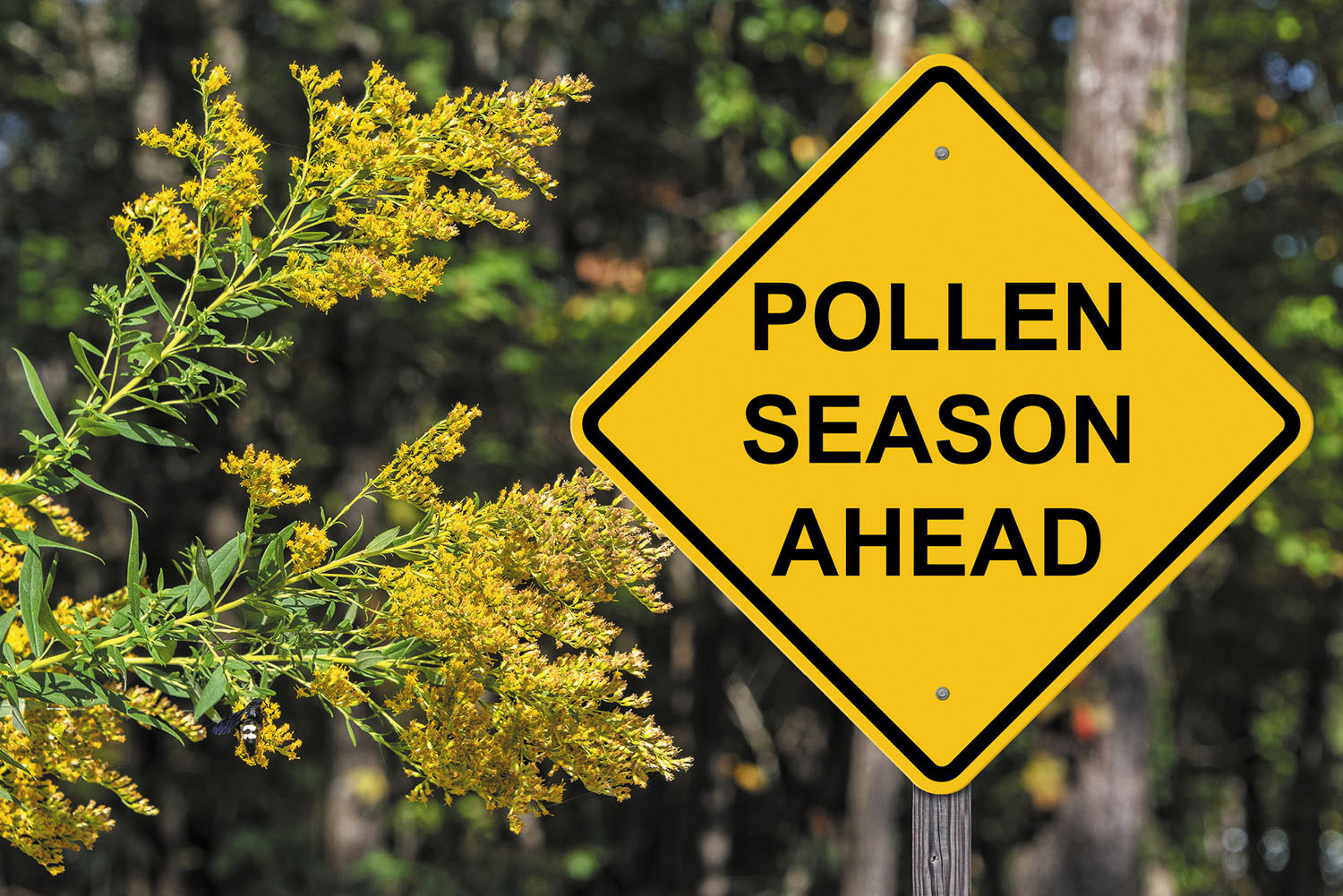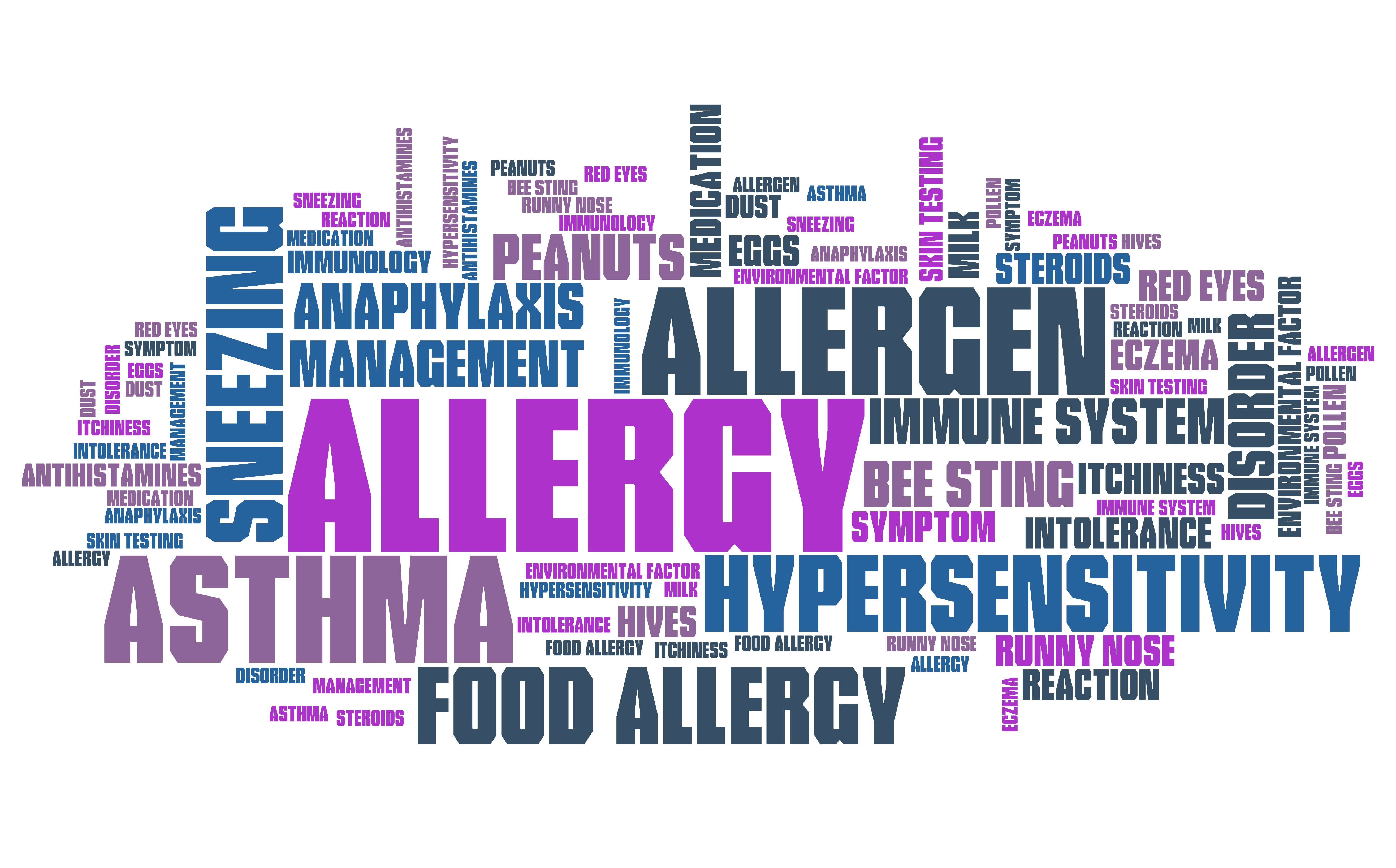
What are somatic workouts?

How to curb your stress eating

How to spot Parkinson’s disease symptoms

8 simple ways to reduce ultra-processed foods in your diet

Heart failure symptoms in women: How they’re different

GERD diet: Foods to avoid to reduce acid reflux

Strong is the new skinny

Everyday habits that sneakily weaken your bones

Don’t wait to get help for back pain

Correcting how you walk may ease osteoarthritis knee pain
Allergies Archive
Articles
Nothing to sneeze at
Here's how to prepare for the coming allergy season.
Spring is in the air, and so are millions of pollen particles, the tiny grains that fertilize plants. Seasonal allergies — also known as hay fever — can affect almost anyone and at any time in life. Although most people begin to experience allergies in childhood or early adulthood, sometimes the symptoms become more problematic later in life, especially if their living environment changes.
"Even if you have never suffered from allergies — or used to when you were much younger but not anymore — there is a good chance you will become more sensitive to pollen as you reach your 60s and 70s, although it's not clear why," says Dr. Mariana Castells, of the Department of Allergy, Rheumatology, and Immunology at Harvard-affiliated Brigham and Women's Hospital.
Red meat allergy spread by ticks: A link to heart disease?
Research we're watching
A bite from a lone star tick can trigger an unusual allergy that causes hives, swelling of the throat and lips, or an upset stomach when you eat red meat. But that's not all: people with this rare red meat allergy may be particularly prone to narrowed, stiff arteries in the heart, a new study finds.
Researchers analyzed blood samples from 118 adults living in Virginia and found that 26% had evidence of a red meat allergy (that is, they had antibodies to a molecule called alpha-gal, the main allergen in red meat). Lone star tick saliva may contain alpha-gal, so when a tick bites a person, it may trigger an immune response by the body, which then recurs when the body encounters alpha-gal in red meat. Lone star ticks are found throughout the southeastern and eastern United States.
Giving antacids and antibiotics to babies can lead to allergies
The overuse of antibiotics and antacids can lead to problems regardless of age, but if given to babies it can contribute to allergies and asthma as children grow.
Got an egg allergy? No need to skip that flu shot next year
Research we're watching
Image: © grinvalds/Getty Images
If you have an egg allergy, you may have been told not to get a flu shot. That's because the vaccine is grown in eggs and may contain a small amount of egg protein, which — it was feared — could trigger an allergic reaction. But a new guideline from the American College of Allergy, Asthma and Immunology (ACAAI) dispenses with that old advice and says even people with an egg allergy should roll up their sleeves and get the shot to protect themselves from the flu.
"When people get flu shots, health care providers often ask if they are allergic to eggs," allergist Dr. Matthew Greenhawt, chair of the ACAAI Food Allergy Committee and lead author of the practice parameter, said in a written release. "We want health care providers and people with egg allergy to know there is no need to ask this question anymore, and no need to take any special precautions. The overwhelming evidence since 2011 has shown that a flu shot poses no greater risk to those with egg allergy than those without." Numerous studies have found that patients with egg allergy — even those with life-threatening allergies to egg — have gotten the shot and did not suffer any ill effects. This suggests there isn't enough egg protein in the vaccine to cause a reaction.
Nine in 10 homes have three or more allergens
Research we're watching
Some new research shows good reason to focus on reducing the number of indoor allergens in your home. A new study published in the Nov. 30, 2017, issue of The Journal of Allergy and Clinical Immunology found that more than 90% of nearly 7,000 homes studied had three or more detectable allergens, from a list of eight common allergens. In addition, some 73% of homes had one allergen found at levels researchers defined as "elevated." The researchers used data from the 2005–2006 National Health and Nutrition Examination Survey. The eight allergens were cat, dog, cockroach, mouse, rat, mold, and two types of dust mites. Factors that led to higher levels of indoor allergens included pets and pests. Certain types of homes were also more likely to have higher allergen levels, including older homes, rental homes, mobile homes, and homes in rural areas.
Is your home a haven for allergens?
News briefs
Spring is on the way, which means allergy season is around the corner. But it's not just springtime pollen that can trigger a runny nose and itchy, watery eyes. Indoor allergens — such as mold, pet dander, and dust mites — can lead to allergy symptoms in some people or make allergy and asthma symptoms worse. And a study published Nov. 30, 2017, in the Journal of Allergy and Clinical Immunology found that 90% of homes have three or more allergens, with at least one allergen at high levels in 73% of homes. Researchers combed through information collected in a large national survey that also assessed allergen levels in bedroom dust collected from nearly 7,000 U.S. households. The presence of pets and pests (cockroaches, rodents) were the major contributors to high levels of indoor allergens in participating homes. Study authors recommend reducing indoor allergens by sealing entry points for pests, keeping pets out of the bedroom, and making sure each week to wash bedding in hot water and vacuum carpets and upholstered furniture.

What are somatic workouts?

How to curb your stress eating

How to spot Parkinson’s disease symptoms

8 simple ways to reduce ultra-processed foods in your diet

Heart failure symptoms in women: How they’re different

GERD diet: Foods to avoid to reduce acid reflux

Strong is the new skinny

Everyday habits that sneakily weaken your bones

Don’t wait to get help for back pain

Correcting how you walk may ease osteoarthritis knee pain
Free Healthbeat Signup
Get the latest in health news delivered to your inbox!
Sign Up










